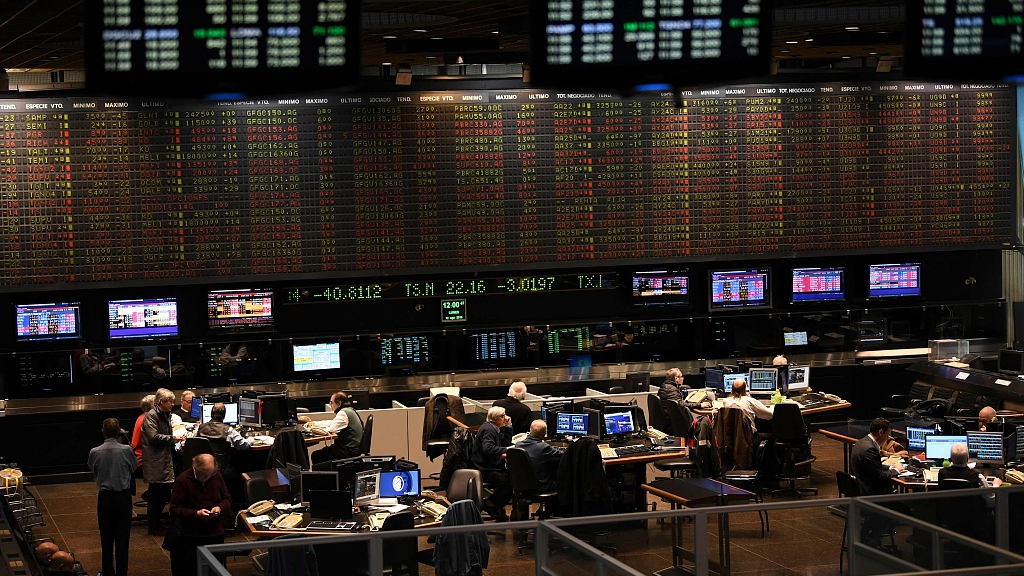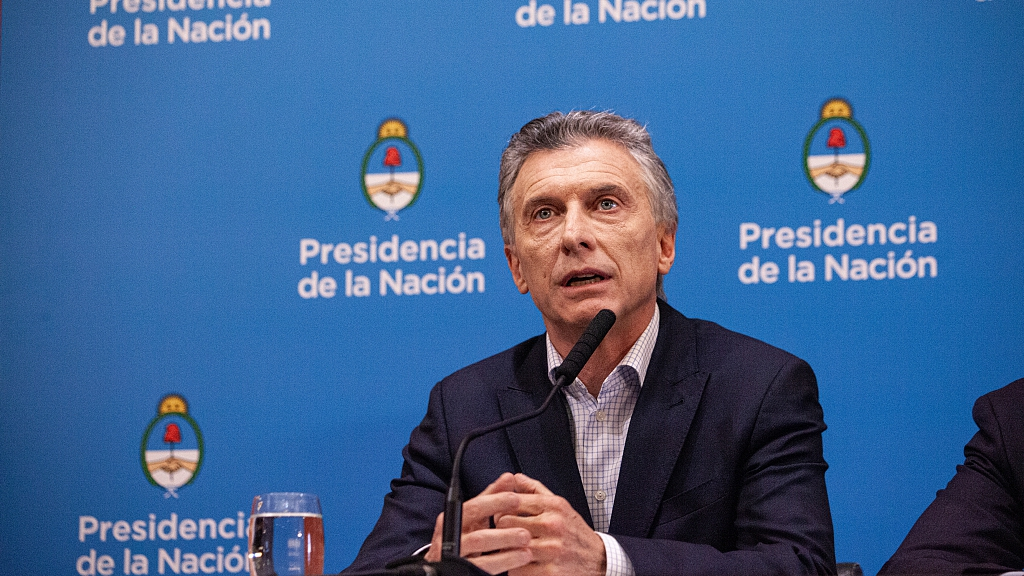

Traders are seen at the stock exchange in Buenos Aires, August 12, 2019. /VCG Photo
Argentine stock markets and currency both staged their steepest fall in decades on Monday after Argentina's President Mauricio Macri suffered a crushing defeat by populist candidate Alberto Fernandez in a party primary election.
This added to investors's concerns over the possible return to power of the country's populist Peronist movement, which advocates greater state control of the economy and opposes a landmark trade deal with the European Union.
Markets panicked as the Merval index, the most important index of the Buenos Aires Stock Exchange, plummeted 37.93 percent to 27,530.80 points, or 48 percent in dollar terms, marking the worst daily performance in 18 years.
The peso initially weakened over 30 percent against the dollar in daily trading before recovering some ground by ending down 15 percent.
On the New York stock exchange, Argentine bonds lost around 20 percent and shares in some companies from South American country hemorrhaged more than 50 percent.
This is just the beginning
Pro-business President Mauricio Macri predicted worse would follow after terrible market performance Monday.

Argentina's President Mauricio Macri speaks during a news conference after the presidential primaries, in Buenos Aires, Argentina, August 12, 2019. /VCG Photo
"This is just a taste of what's going to happen" if the Peronist Fernandez, whose running mate is corruption-tainted former president Cristina Kirchner, comes to office, Macri warned.
"This is about the past, there's a ton of people who don't keep their money in this country, who are leaving this country. It's incredible what could happen."
Macri called a meeting with Central Bank president Guido Sandleris before the markets opened on Monday. The Central Bank bought 50 million U.S. dollars in pesos to try to halt the slide, but to no avail.
Speaking before the worst of the day's losses were known, Fernandez blamed the market reactions on government policies.
"The president cannot have peace of mind. The markets are giving warning that the government has put itself in a position it cannot respond to," Fernandez said.
Profound dissatisfaction
Argentina is currently in a recession and posted 22 percent inflation for the first half of the year -- one of the highest rates in the world. Poverty now affects 32 percent of the population and the peso lost half its value against the dollar last year.
Backed by the International Monetary Fund, Macri has initiated an austerity plan that is deeply unpopular among ordinary Argentines, who have seen their spending power diminished dramatically.

Presidential candidate Alberto Fernandez (C) /Reuters Photo
But the Buenos Aires stock exchange shot up eight percent on Friday amid expectation that Macri would do well in Sunday's vote.
Those hopes were quickly quashed as it lost 10 percent when operations opened on Monday, before plunging further throughout the day.
Macri now faces a daunting task of trying to overturn a huge deficit in just two and a half months.
"The vote shows a profound dissatisfaction with the economic situation (and) the worry within society that the government is disconnected from reality and wasn't up to tackling the problems," political analyst Carlos Fara told AFP.
(With input from AFP)

Copyright © 2018 CGTN. Beijing ICP prepared NO.16065310-3
Copyright © 2018 CGTN. Beijing ICP prepared NO.16065310-3